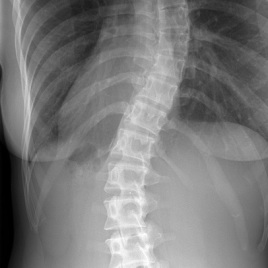The younger an immigrant is when he or she arrives in Canada, the higher their risk of developing inflammatory bowel diseases (IBD) such as Crohn’s disease and ulcerative colitis according to new research. The study found that the children of immigrants from some areas of the world have a 14% increased risk of developing IBD […]
Tag: health
Hormone therapy and heart diseases
Hormone replacement therapy does not protect post-menopausal women against cardiovascular diseases, an updated meta-analysis shows. Furthermore, hormone therapy does cause a slight increased risk of stroke. The authors of the study took into account new results from clinical trials that lasted between six months and 10 years, in which 40,000 women (mainly over 60 years […]
Incidental findings: What would you want to know?
With next-generation individual genome sequencing for medical reasons comes the ethical issue of uncovering incidental findings about one’s health. Would you like your physician to tell you that you are at risk for Alzheimer’s disease? Responding to an online questionnaire, 1200 Canadians answered that they generally would agree to receive information about high-risk disease disorders […]
Oncologists weigh the pros and cons of gene-expression profiling
Should women diagnosed with early-stage breast cancer have chemotherapy? To help make that choice, some physicians recommend gene-expression profiling (GEP) tests to identify patients who may benefit from the treatment. Carrying the brand name Oncotype DX, this test analyzes the patterns of 21 different genes within the cancer cells to help predict how likely it […]
Ongoing measles outbreak in Bosnia and Herzegovina
The Federation of Bosnia and Herzegovina is located in South-eastern Europe on the Balkan Peninsula. The anti-vaccine movement is not only present in Canada and in the United States, but also in many other countries. Now, a measles epidemic is ongoing in the Federation of Bosnia and Herzegovina and the anti-vaccine movement has contributed in part […]
How often do you catch the flu?
Adults only catch the flu about twice every 10 years, according to a new study. The researchers looked at antibody levels in 150 people from Southern China against nine influenza strains from 1968 to 2009. They found that while children get flu on average every other year, infections become less frequent as people get older. […]
A mothers heartbeat, even a digital version, may help premature infants development
Babies born prematurely show an increase in growth in the brain’s auditory cortex when recordings of their mother’s voice and heartbeat are played. The auditory cortex in utero is thought to be important for the development of vocal communication as well as providing the ability to interpret and remember speech. Researchers played recordings of a […]

A sauna in every house
Men who routinely take saunas are at less risk of dying from sudden cardiac death and other fatal cardiovascular diseases a new study shows. Researchers followed a group of 2,315 middle-aged men (42 to 60 years old) in Finland and found that men who used the sauna two to three times per week had a 24 per […]
Quitting is good for the brain
People who quit smoking may reduce or halt the thinning of the brain’s cortex. A new study has found that the cortex of the brain, which plays a key role in memory, attention, thought and language, is known to thin with age and this feature is used as one of the biological markers for cognitive […]
Turning off screens could help teenagers get a better nights sleep
Viewing screens on electronic devices such as computers, cell-phones, tablets, or television has a negative effect on teenagers sleep patterns, according to new research. The authors conclude that recommendations should be updated and new guideline developed for healthy electronic media use before bedtime. A study of nearly 10,000 Norwegian teenagers, aged 16 to 19, has lead researchers […]

Gene causing common scoliosis identified
Researchers have identified the first gene causing idiopathic scoliosis, the most common type of spinal deformity. They identified 11 family members of a French family that were carriers of a rare variant of the gene, called POC5, and then used zebrafish to confirm that this variant really cause spinal deformity. This study is the first […]
Maternal hypertension and the baby
While almost 10 per cent of pregnant women have hypertension, a new study suggests that should not worry them too much when it comes to their baby’s health. An international team of physicians followed 987 pregnant women in 16 countries, 75 per cent of which suffered from hypertension. They randomly assigned them to either a […]
New guidelines for weight management
Weight and obesity is a public health issue in Canada as more than 67 per cent of Canadian men, and 54 per cent of women are considered overweight or obese. The Canadian Task Force on Preventive Health Care has drafted new recommendations for clinicians and policy-makers after reviewing currently existing prevention and treatment literature. The […]
Nocturnal leg cramps more common in summer
Painful nocturnal leg cramps are about twice as common during summer than in winter, a new study has found. The authors found this by looking at the prescribing information in British Columbia between 2001 and 2007, for Quinine sulfate, commonly prescribed to treat the pain, and the volume of internet searches for “leg cramps” from […]
How eating salt reprograms the brain
Researchers have described a mechanism by which high salt intake can lead to higher blood pressure. Using rats, they found that salt causes biochemical changes in neurons that release vasopressin, a hormone that increases arterial blood pressure. Salt disables the natural safety mechanism that prevents vasopressin from being released in the blood, thus allowing blood […]
Rare shared genetic mutation behind Inuit disease
Scientists have found the gene mutations responsible for a rare disease which impairs the function of the liver and muscles in about 1 in 2500 Inuits in northern Quebec. Called glycogen storage disease type IIIa, this sickness causes a buildup of glycogen, a complex sugar, in the body. This in turn produces low blood sugar […]